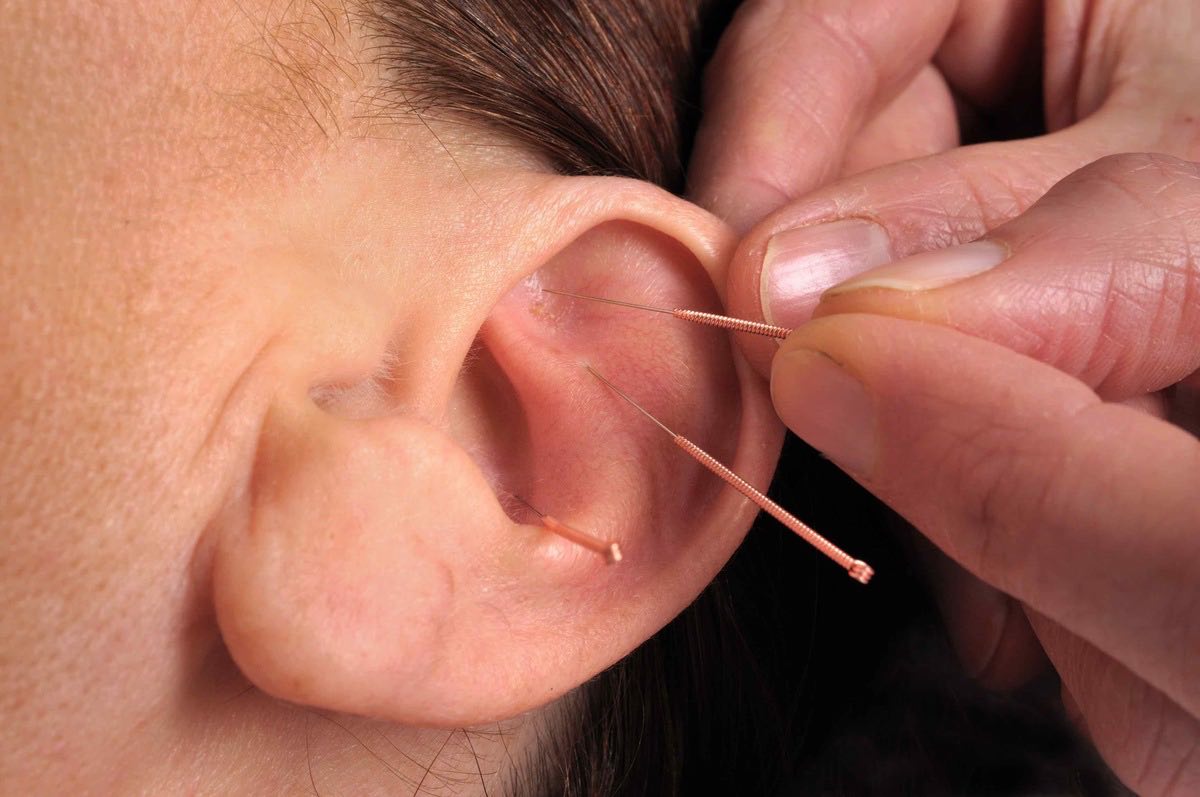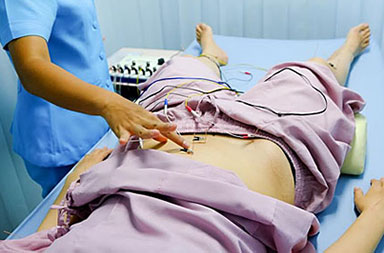A key way acupuncture works is to influence the autonomic nervous systems, which is responsible for many bodily functions.
In this blog, we will explore the effects of acupuncture on the autonomic nervous system, how it stimulates the vagus nerve, balances the adrenals, and enhances the mind-body connection.
Autonomic Nervous System
The autonomic nervous systems (ANS) are a component of the nervous system that controls many involuntary functions of the body, including heart rate, blood pressure, digestion, and breathing. It can be divided into two major branches: the parasympathetic and sympathetic nervous systems.
Parasympathetic and sympathetic nervous systems balance each other much like the idea Yin/Yang. Parasympathetic nervous systems are calm and relaxing, while the sympathetic nervous system activates much like yang-energy.
The body’s “fight-or-flight” response is controlled by the sympathetic nervous system. This prepares it for action when faced with danger or stress. It can increase heart rate, blood pressure, respiration, and digestion, as well as other non-essential functions.
Parasympathic nervous system is responsible for the body’s “rest-and-digest” response. This promotes relaxation and digestion as well as other vital bodily functions. It reduces heart rate, blood pressure, and respiration and promotes digestion, elimination, and slows down heart beat.
We need both of these to function in the world but we don’t want either one to become dominant. However, in our society most of us feel a lot of stresses which stimulate out flight or flight response. We need ways to encourage quiet and relaxation in the body.

Acupuncture
Acupuncture works by bringing balance to the body. Traditionally we have said that we bring balance to the yin and yang and qi and blood. Research now shows we bringing balance also to the nervous sysetm.
Several studies have investigated the effects of acupuncture on the ANS. Studies have shown that acupuncture stimulation reduces sympathetic activity and increases parasympathetic activity. This suggests acupuncture may be effective in regulating the ANS and restoring balance to the body. By reducing sympathetic activity and increasing parasympathetic activity, acupuncture helps to reduce stress, promote relaxation, and improve digestion and other essential bodily functions.
Benefits
The effects of acupuncture on the ANS may have a range of health benefits. By reducing sympathetic activity and increasing parasympathetic activity, acupuncture may help to:
- Reduce stress and anxiety
- Improve digestion and elimination
- Reduce pain and inflammation
- Improve sleep quality
- Regulate blood pressure and heart rate
- Improve immune function
The Vagus Nerve
One of the key mechanisms by which acupuncture is believed to balance the nervous system is via the vagal-adrenal axis. Activating the vagus nerve can help you feel better by promoting relaxation and calming your body.
The vagus nerve is involved in the regulation of internal organ functions such as digestion, heartbeat, respiratory rate, and respiration rate. It also regulates vasomotor activity and reflex actions such as coughing and sneezing.It plays a critical role in the parasympathetic nervous system.
The adrenal glands sit atop of the kidneys and are part of the endocrine system. They make a variety of hormones such as cortisol or adrenaline. The hormones are involved in the stress response, immune function, and inflammation.
The vagal-adrenal axis refers to the interaction between these two systems.
The vagus nerve counters the stress signals by slowing the heart rate, lowering blood pressure, calming the breath, and relaxing different muscles.
Acupuncture and the Vagus nerve
When an acupuncture needle is inserted into specific acupuncture points on the skin, it stimulates the underlying tissue, including the nerves and nerve bundles.
Acupuncture specifically at the point Stomach 36 has been shown to stimulate the vagus nerve. Additionally, the auricular branch of the vagus nerve, which runs near the skin in each ear, is the ideal location providing easy access points for stimulation from acupuncture treatments.
By modulating this pathway, acupuncture can help to regulate the body’s stress response, immune function, and inflammation, among other things.

The Adrenal System
The adrenal glands sit atop the kidneys and produce hormones like cortisol and sex hormones (testosterone, estradiol, progesterone) that regulate metabolism, hydration, blood pressure, heart rate, and immune function. When you are under stress, the hypothalamus and pituitary send signals to the adrenals triggering their release of cortisol and other hormones.
Normally, this response is very effective in addressing stressors and helps us recover from the threat. After a stressful situation passes, cortisol clears and the body returns to normal. However, with chronic stress, the hypothalamic pituitary adrenal (HPA) axis becomes dysregulated.
This is where acupuncture can help. Acupuncture helps to stimulate the vagus nerve and parasypathic system relaxing the body. After a few acupuncture sessions, you will find that you’re body will react less in stressful situations.

Mind Body Connection
When we experience stress, our sympathetic nervous system becomes activated, which can have negative effects on our physical and mental health.
Your parasympathetic nervous system can also be regulated by mind body exercises and meditation techniques. Acupuncture has many benefits to help the mind body connection including reducing stress, improving mood, and providing a moment of mindfulness.
In addition to acupuncture I will often advise my patients to practice breating techniques and mindfulness.
Breathing Exercises
Breathing is the only function of the body that we can easily control. This is why breathing exercises allow us to talk back to the nervous system to calm the body.
Diaphragmatic breathing is a simple technique that activates the parasympathetic nervous system and promotes relaxation. You can do this exercise by either lying down on your back or sitting in a chair with your. Your hands should be on your belly just below your belly button. Allow your shoulders to relax and your chest to open. Then, breathe into your hands and let your stomach naturally rise and fall. Take a deep breath in through the nose. Hold it for a few seconds and then exhale slowly through the mouth. This can be done for five minutes each day, or whenever you feel stressed.
Meditation
Meditation is a mind-body practice that involves focused attention. The focus can be on your breath, observations of how your body feels (called a body scan), or a visualization. It has been shown to have numerous health benefits, including reducing stress and anxiety, improving mood, and enhancing cognitive function. Free Mindfulness is a wonderful free resource for mindfulness recordings. Regular meditation practice can help to calm the mind and body.

Conclusion
Acupuncture is a safe and effective technique for promoting a balance in the mind and body. Traditionally, we explained that it works by improving the flow of qi & blood and yin & yang. Now we see there is a lot of research showing acupuncture balances the nervous system.
Acupuncture helps to restore balance to the body and promotes relaxation, digestion, and other essential bodily functions by influencing the autonomic nervous system. This may be a key mechanism acupuncture helps to reduce inflammation and promote healing. Acupuncture can help individuals to achieve optimal health and wellness by restoring balance to the body and mind.



